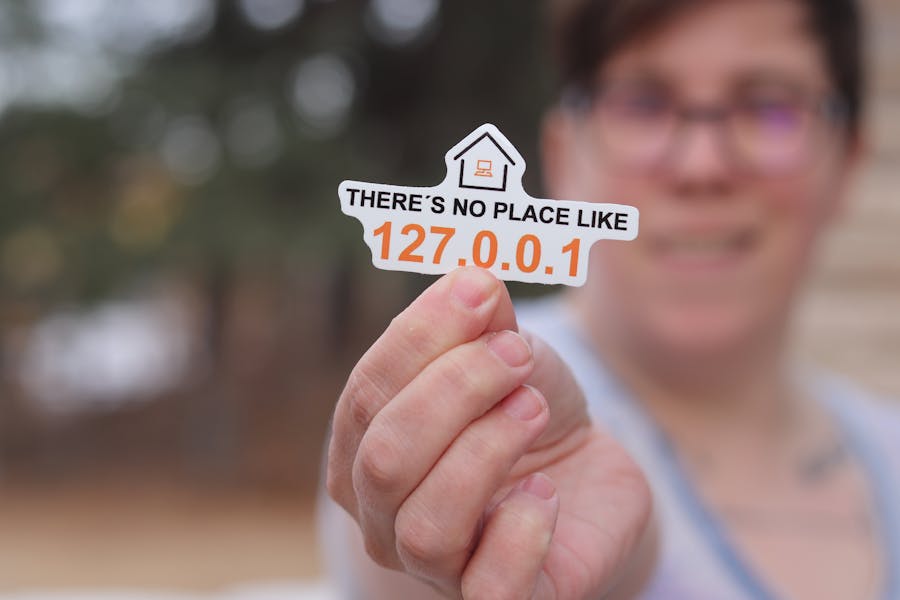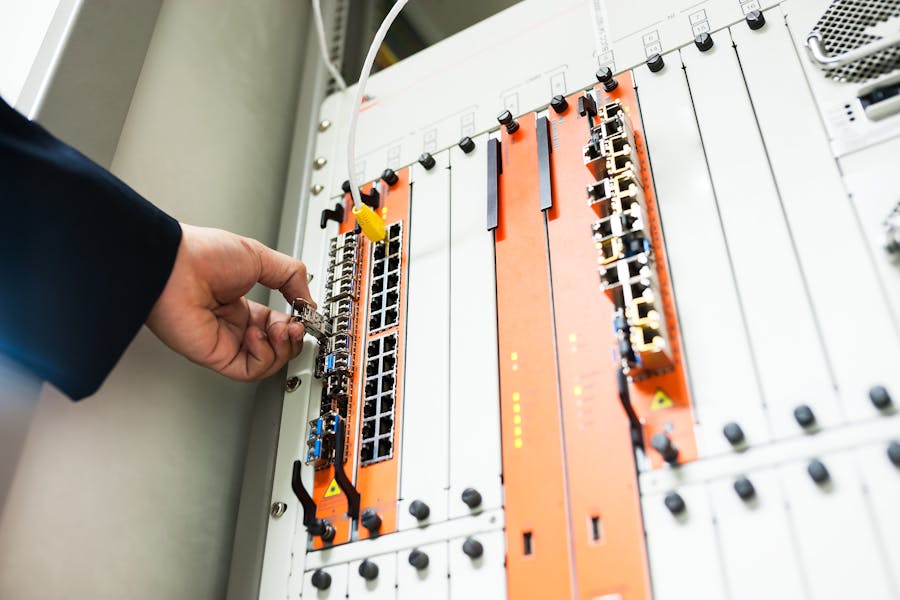
Every digital interaction—whether streaming a video, browsing a website, or sending an email—relies on a hidden yet powerful identifier: the IP address. Acting like a postal address for the internet, an IP (Internet Protocol) address routes your data from one device to another. But beyond functionality, IP addresses are increasingly used to track user location, estimate identity, and enforce regional controls. This raises a pressing question: Are IP addresses accurate?
The answer is both yes and no. While IP addresses can give a ballpark idea of a user’s region or city, they often fall short when pinpointing specific addresses, especially in dynamic or mobile environments. The surge in VPNs, mobile networks, cloud services, and shared infrastructures has made IP location tracking more complex than ever.
Are IP Addresses Accurate? IP addresses can offer rough geographical accuracy (city-level), but many factors such as VPNs, dynamic ISPs, and mobile networks affect precision. While they help in basic location tracking, IP addresses are not reliable for pinpoint identity. So, are IP addresses accurate? To a limited extent—don’t expect them to act like GPS.
The Accuracy and Functionality of IP Addresses Explained
To understand are IP addresses accurate, we need to examine the mechanism behind how they work. An IP address is a numerical label assigned to each device connected to a network. It allows data to be transmitted between devices on different networks and serves two main purposes: host identification and location addressing.
There are two types of IP addresses in use today: IPv4 and IPv6. IPv4 is the most widely deployed version, using a 32-bit system that allows for over 4 billion unique addresses. IPv6, the newer version, uses a 128-bit system and offers a virtually infinite number of addresses. However, despite IPv6’s larger address space, the actual improvement in geolocation accuracy is minimal.
Accuracy in this context refers to the ability of an IP address to provide correct location data. Most often, geolocation databases (like MaxMind, IP2Location, or GeoIP2) attempt to match IP addresses with physical locations. These databases are updated regularly using ISP data, WHOIS records, and even user-contributed data.
However, the level of detail varies. For static IP addresses—those assigned to organizations or large enterprises—the geolocation tends to be more accurate. This is because these addresses rarely change and are associated with known business addresses. But for the average user connected through a home ISP with a dynamic IP address, the accuracy drops significantly. ISPs often allocate IPs regionally, and the IP assigned to a user could reflect the location of the nearest network hub rather than the user’s actual location.
Moreover, mobile networks further reduce IP accuracy. When you’re using cellular data, your traffic is typically routed through centralized carrier-grade NATs (Network Address Translation), making it difficult to discern your true geographic location. A mobile user in Los Angeles might appear to be accessing the internet from San Jose.
The Accuracy of IP Addresses and When They Work or Fail
IP address accuracy can vary significantly depending on connection type, network configuration, and whether masking tools like VPNs are in use. Here’s a breakdown of when IP addresses are accurate—and when they’re not.
IP Address Accuracy by Internet Type
IP accuracy often hinges on the type of internet connection. Broadband services typically yield better IP geolocation results than cellular or satellite connections. For example, home Wi-Fi connected via a fixed broadband provider might correctly pinpoint your city or metro area. In contrast, mobile data often routes through distant towers or central hubs that distort your actual location.
Effect of Dynamic vs Static IPs
Dynamic IPs, which change frequently, are commonly used for residential broadband customers. Each time you reconnect, your ISP may assign a new IP from its pool. This change complicates geolocation, since the IP may be associated with a different region. On the other hand, static IPs—used by businesses or for dedicated servers—tend to have more accurate mappings because their geolocation is stable.
VPN and Proxy Interference
Virtual Private Networks (VPNs) intentionally reroute your traffic through secure tunnels, usually located in another city or country. Similarly, proxies act as intermediaries that can alter your visible IP. In both cases, the goal is to conceal the user’s actual location, rendering the question “are IP addresses accurate?” moot in these contexts.
How Accurate Are IP Databases?
Even commercial-grade IP databases have their limitations. MaxMind, for instance, claims 95% accuracy at the country level, but only 50–70% accuracy at the city level. That means a significant margin of error when it comes to more granular targeting. Furthermore, some users might be incorrectly identified as residing in another state, or even continent.
Enterprise Networks and NAT Gateways
Many companies and institutions use a single external IP for multiple internal devices via NAT (Network Address Translation). This means dozens or hundreds of employees might appear to share the same IP. In such cases, the IP address will only reflect the headquarters or office network, not any specific individual user.
Factors Influencing the Accuracy of IP Addresses
Let’s break down the key contributors that impact IP accuracy:
- Geolocation Database QualityThe more frequently updated the IP database, the more accurate it becomes. Some databases update hourly; others monthly. Outdated databases lead to greater location mismatches.
- Internet Service Provider (ISP) ArchitectureSome ISPs assign regional IPs, while others might centralize routing. Centralized routing reduces IP granularity and creates false location signals.
- Dynamic Address PoolsThese change frequently, often reassigning IPs across regions. This creates an inconsistency in user tracking and geo-targeting.
- Device Type & Access PointPublic Wi-Fi or mobile networks distort user location. Routers in cafés or libraries may register differently than your actual device’s location.
- Use of Privacy ToolsVPNs, TOR, and proxy services intentionally obscure IP data. This can make IP-based tracking entirely inaccurate.
- IPv6 vs IPv4Though IPv6 offers more address space, many services still rely on IPv4 databases, making them less effective in newer infrastructure environments.
IP Address Reliability in Law Enforcement and Business
Law enforcement often begins digital investigations by tracking IP addresses, particularly in cases involving cybercrime, harassment, or fraud. When an IP is linked to criminal activity, authorities can subpoena the relevant ISP to reveal the customer assigned to that IP at a given time.
But is this approach reliable? Not always.
Consider the case of shared IP addresses. In some residential neighborhoods, multiple users may share a subnet. Similarly, public Wi-Fi hotspots and library networks route all activity through a single IP. Without corroborating evidence (e.g., login timestamps, MAC addresses), it’s easy to misidentify the suspect.
In business, marketers frequently use IP addresses for location-based ad targeting. Ads are tailored based on the presumed city or state derived from the IP. But when users use mobile data or VPNs, targeting goes awry. A New Yorker could see ads meant for users in Ohio.
IP Address Accuracy vs. Other Location Technologies
While IP addresses offer a basic level of geolocation, other technologies provide far greater precision and tracking depth. Here’s how IP compares to GPS, fingerprinting, and more.
IP vs GPS Tracking
GPS offers location precision within 5–10 meters. It’s embedded in smartphones and navigation tools. In contrast, IP addresses are only accurate to the city or regional level, with many caveats.
IP vs Device Fingerprinting
Device fingerprinting uses browser data, installed fonts, screen resolution, and plugins to create a unique identity. This is more persistent than an IP address, which can change regularly.
IP vs Wi-Fi Triangulation
Wi-Fi triangulation uses nearby Wi-Fi networks to estimate location. When combined with IP, it provides significantly better accuracy.
Hybrid Tracking Models
The most robust systems blend IP data with cookies, GPS, device ID, and behavioral analytics. This creates more holistic and reliable user profiles.
Use Cases and Accuracy Trade-offs
- IP = Good for regional targeting
- GPS = Excellent for real-time tracking
- Cookies = Best for tracking user behavior across sessions
- Fingerprinting = Good for long-term identification
Each tool has pros and cons, but none are perfect on their own.
Conclusion
So, are IP addresses accurate in the modern digital landscape? The short answer is: partially. They can identify your country and possibly your city, but rarely offer the precision or reliability needed for legal, security, or advertising decisions.
FAQ’s
Can IP addresses reveal my exact location?
No, IP addresses typically reveal only a general region—such as your city or metro area—but not your exact home address or precise coordinates.
Are VPNs the main reason IP geolocation fails?
VPNs are a major factor, but other causes include mobile data routing through remote towers and frequent changes from dynamic IP assignments.
How accurate are IP addresses for businesses doing geotargeting?
They’re usually dependable for broad-level targeting like country and city, but not accurate enough for ZIP code, street, or neighborhood-level precision.
Can two users share the same IP?
Yes, particularly in shared networks like offices, coffee shops, or schools using NAT, where multiple users appear under a single public IP.
What’s the most accurate way to track a device’s location?
GPS provides the highest precision, often within meters, especially when combined with Wi-Fi and IP data in hybrid geolocation models.





